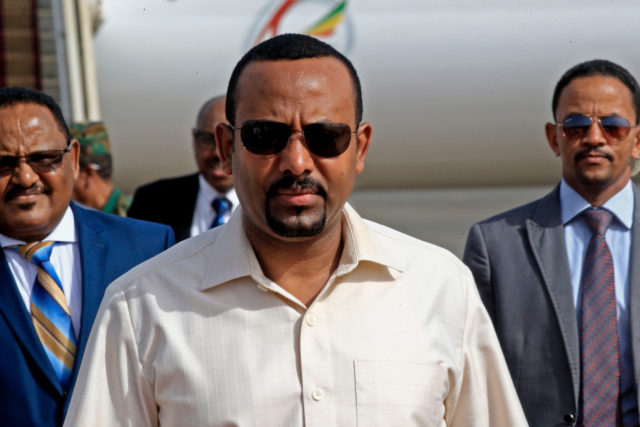
Bloomberg || Since taking power last year, Ethiopian Prime Minister Abiy Ahmed has been on a drive to open up Africa’s second-most-populous nation. He has scrapped bans on opposition and rebel groups, purged allegedly corrupt officials, ended two decades of acrimony with neighboring Eritrea and put out the welcome mat for foreign capital in an effort to maintain growth in one of the world’s fastest-expanding economies. But he still confronts stumbling blocks, including ethnic unrest and opposition from factions within the ruling party. Recent attacks that claimed the lives of five senior government officials have highlighted the extent of the challenges confronting Ethiopia.
1. What sparked the attacks?
The government described the June killings of the five officials, including the army chief of staff and the president of the northern Amhara region, as an attempted coup.
Abiy’s office accused Brigadier-General Asaminew Tsige, the head of Amhara’s administration and security bureau, of orchestrating the attacks and said he’d been shot dead while on the run near the regional capital.
Amhara TV aired an earlier recorded conversation with its editor-in-chief in which Asaminew was heard to confess to the plot, complaining that the national government ignored the Amhara people’s concerns and grievances.
2. How has the government responded?
In the aftermath of the attacks, the government switched off internet access throughout the country for ten days. Security forces have detained more than 250 people, most of them in the Amhara region and in the national capital, Addis Ababa, and more arrests are expected.
Abiy named intelligence agency chief Adem Mohammed as the new army chief of staff and appointed new chiefs of the ground forces and National Intelligence and Security Service.
3. What’s behind the ethnic tensions?
Africa’s oldest nation state and one of a handful of countries on the continent to avoid European colonization, Ethiopia was an absolute monarchy until the 1974 socialist revolution that deposed Emperor Haile Selassie.
The country has been a multi-ethnic federation since 1991, when an alliance of rebels led by the Tigray People’s Liberation Front overthrew the Marxist military regime that followed Selassie. Recently, the country endured four years of protests, mainly by members of the Oromo and Amhara communities, which together account for almost two-thirds of Ethiopia’s 100 million people.
They complained of economic and political marginalization by the Tigrayans, who make up about 6% of the population but have dominated Ethiopian politics since the 1990s.
4. What brought Abiy to power?
Ethiopia’s previous prime minister, Hailemariam Desalegn, was a member of the minority Wolayta community and belonged to the political party in power since 1991. In 2018, he became the first ruler in modern Ethiopian history to step down voluntarily after failing to quell violent protests that claimed several hundred lives.
The ruling party chose Abiy, an ethnic Oromo, to succeed Desalegn and he took over as prime minister two months later. He has pledged to hold elections in 2020.
5. Could Abiy’s reforms be derailed?
The prime minister has vowed not to be deterredby the assassinations. The murdered Amhara region president, Ambachew Mekonnen, backed Abiy’s policies, but his death is unlikely to undermine the reform process unless the violence escalates or spreads.
Insecurity and a lack of preparation by the electoral board, however, suggest it could be difficult to hold a credible vote next year. A delay would heighten the risk of more conflict.
6. How’s the economy holding up?
Ethiopia’s $80 billion economy has expanded an average of almost 10% a year over the past decade, according to the International Monetary Fund, and the nation drew in a record $13 billion of investments, loans, grants and remittances during Abiy’s first year in office.
While the IMF sees the average annual growth rate slipping to 7.2% through 2024, the economy could surprise to the upside if the ruling party follows through on plans to open up state-dominated industries such as telecommunications to outside investors. Unilever NV, Diageo Plc and Hennes & Mauritz AB (H&M) are among the companies with operations in Ethiopia. The Grand Ethiopian Renaissance Dam, Africa’s biggest hydropower project, is being built by Italy’s Salini Impregilo SpA.
7. What’s at stake for security?
Ethiopia is a major power broker in the Horn of Africa, with peacekeepers in Sudan and South Sudan and troops in neighboring Somalia fighting militants linked to al-Qaeda. It also has more refugees within its borders than any other African nation. That means any escalation in unrest will have a bearing on stability in the tumultuous region. The nation is also a key ally of the U.S. and hosts the headquarters of the African Union.
























